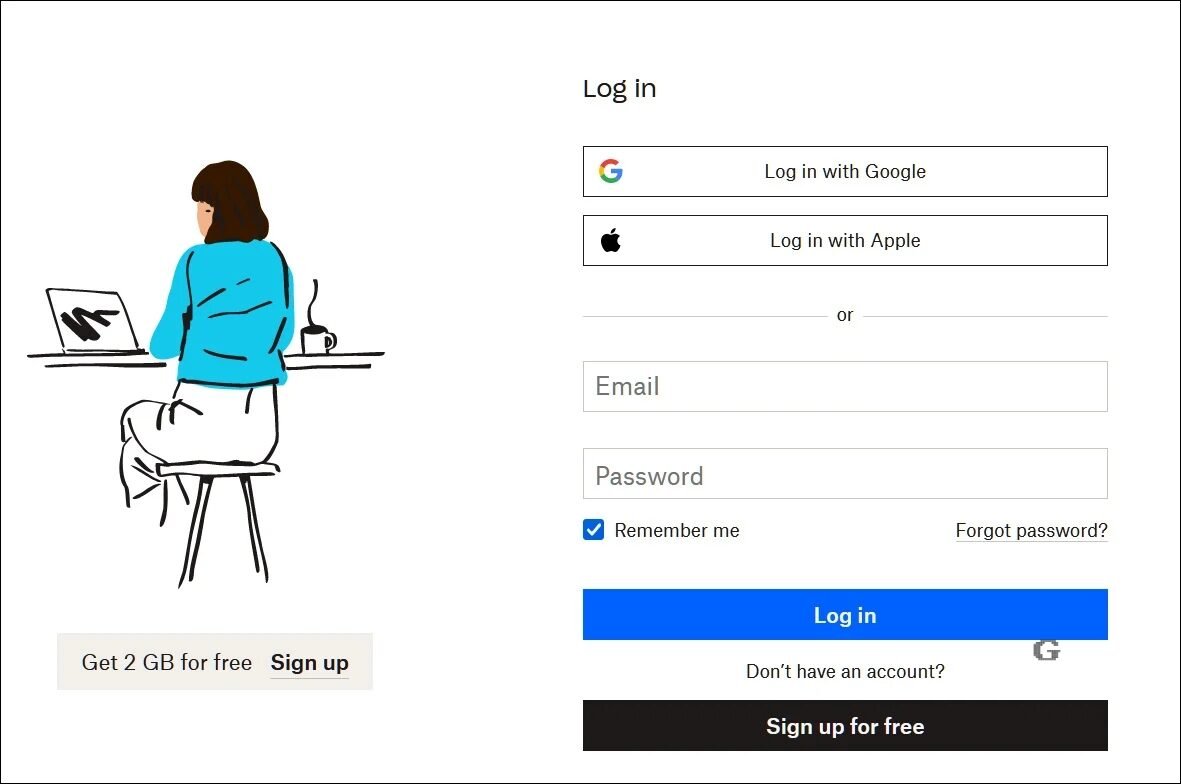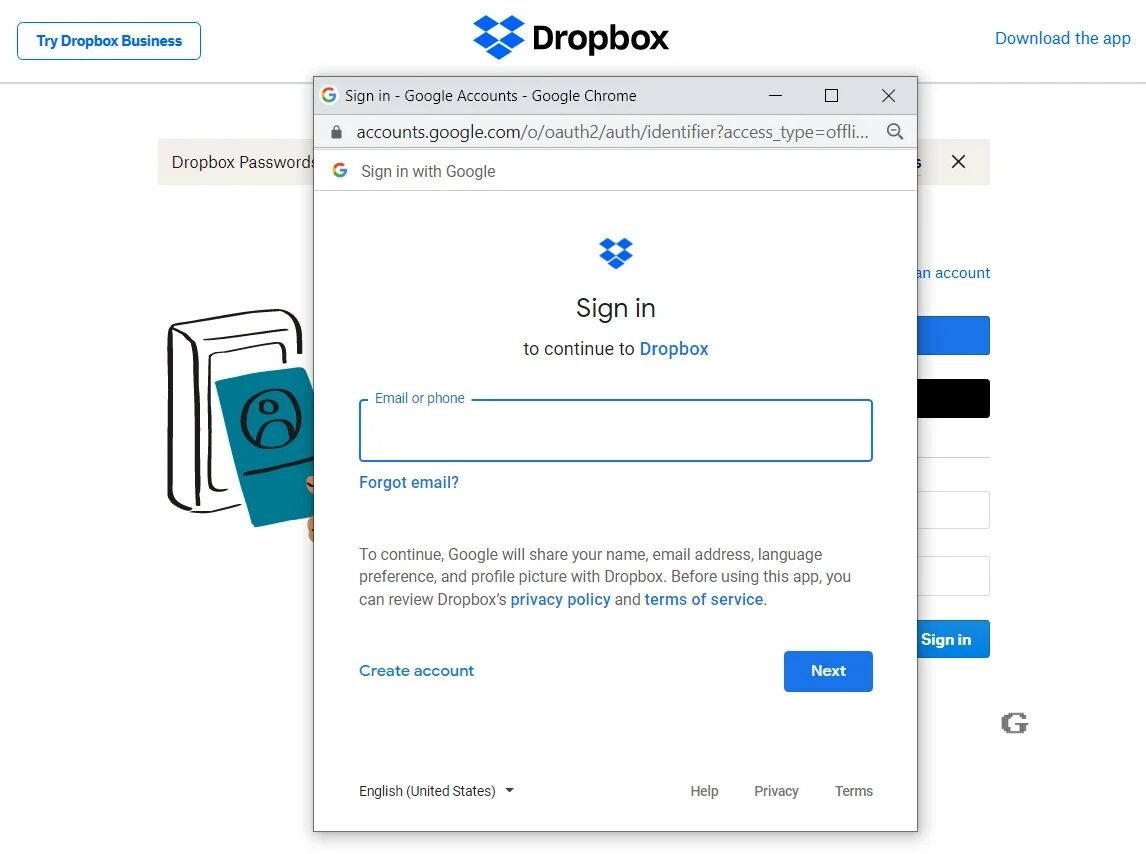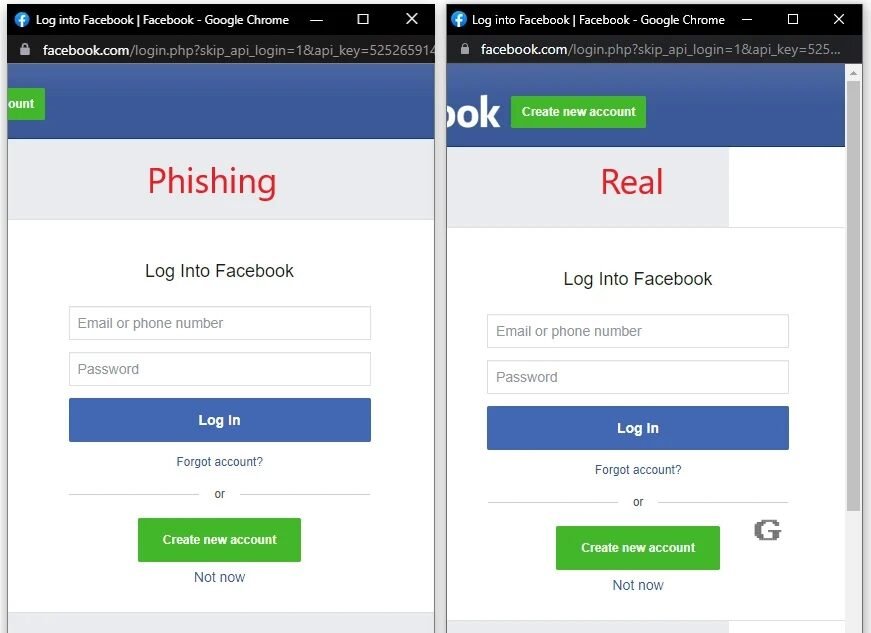Μόλις κυκλοφόρησε ένα κιτ ηλεκτρονικού "ψαρέματος" που επιτρέπει σε κακόβουλους χρήστες να δημιουργούν αληθοφανείς και αποτελεσματικές φόρμες connections phishing using fake Chrome browser windows.

When you link to sites, you also see the option to connect with Google, Microsoft, Apple, Twitter or even Steam.
For example, the DropBox login form lets you sign in using an Apple or Google Account, as shown below.
With the new method, when you click the login buttons with Google or Apple, an identical single-sign-on (SSO) browser window will appear asking you to enter your credentials and sign in. with the account.

Malicious users used to try to create these fake SSO windows using HTML, CSS, and JavaScript, but there was usually something that made them look suspicious.

Browser in the Browser attacks
Εδώ έρχεται η νέα μέθοδος "Browser in the Browser (BitB) Attack" που χρησιμοποιεί προκατασκευασμένα πρότυπα για τη δημιουργία πλαστών αλλά ρεαλιστικών αναδυόμενων παραθύρων του Chrome που περιλαμβάνουν προσαρμοσμένες διευθύνσεις URL και τίτλους που μπορούν να χρησιμοποιηθούν σε επιθέσεις phishing.
This attack creates fake browser windows inside the actual browser windows (Browser in the Browser) to create compelling phishing attacks.
Browser attack templates are already in place in GitHub. Συμπεριλαμβάνουν παράθυρα του Google Chrome για Windows και Mac με παραλλαγές σκοτεινής και φωτεινής λειτουργίας.

Attackers can simply download the templates, edit them to contain the desired one address URL, its title window and then use an iframe to display the login form.
Kuba Gretzky, the creator of the Evilginx phishing toolkit, tested the new method and said it works perfectly with the Evilginx platform, which means it can be adapted to steal 2FA keys during phishing attacks.
So in the next period it would be good to be more careful with each login form. With the pre-built templates for fake Chrome windows, very convincing login forms for phishing will appear.






Good evening George. You are obviously talking about 2FA code theft from applications that generate 2FA codes. We're not talking about passwords being sent to our cell phones, are we? This is only done via SIM swapping as far as I know.
look
In the end it is much simpler than I imagined. The fake page just asks you for the 2FA key, as soon as you receive it you enter it in the fake page you have entered and the username and password and the hacker has everything he needs!
Thanks!
Can we find somewhere in detail if it is true that it can actually steal 2FA keys ???
The article mentions it briefly, but in a search I made on the subject I did not find anything related to the 2FA keys
need tools to steal 2fa, the Evilginx phishing toolkit for example already steals 2fa The new technique made it easier